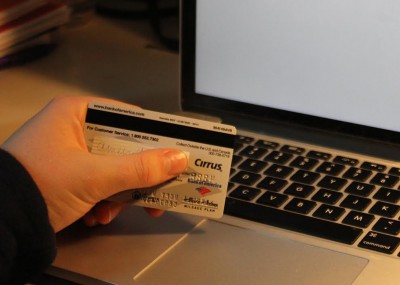
Boston University Police Department is aiding U.S. Secret Service investigators with increased reports of stolen credit card information.
As of Tuesday, twelve Chinese international students with credit cards issued by the Bank of China reported that confidential information from their accounts was stolen, said BUPD Detective Lieutenant Peter DiDomenica. The first report was received on Oct. 9.
“Not only is it a trend, but they [the reports] seem to be related,” he said. “For the people involved in doing this, it seems like the same group that is responsible for all of these because they’re so similar. It’s specific banks in a very narrow window of time that this is happening.”
Because the financial fraud spans multiple jurisdictions, states and countries, DiDomenica said the Secret Service has more capability to investigate the claims. BUPD is collecting reports and forwarding them to the Boston field office of the Secret Service.
While BUPD occasionally deals with stolen or missing credit cards, the increase in the number of cases in a small frame of time shows how sophisticated thieves have become, DiDomenica said.
“It’s dishonest people that are stealing. They’re exploiting the Internet and electronic accessed information, and it’s not just a new way of committing fraud and exploiting these digital systems,” he said. “It’s really no different than any other form of crime involving theft. It’s just a little more sophisticated.”
Robert Siciliano, an expert in credit card theft and identity fraud and CEO of the website IDTheftSecurity, said because theft cannot be fully prevented, people should learn to stay vigilant.
“Every time you give out your bank or credit card number, it is at risk of being compromised every single time, and there’s nothing that you can do about that,” he said. “What you should do in response to the hopelessness of protecting your credit cards, [because] you can’t, is you should be paying attention to your statements.”
Siciliano suggested credit card owners look at their bank statements at a minimum of once a month to ensure that fraudulent purchases have not been made.
Vijay Kanabar, an associate professor of computer science in the Metropolitan College at BU, said it is easy for credit card information theft to occur both online and in person.
“Let’s say at Boston University all the students use their credit card at Barnes & Noble BU or a restaurant on Comm. [Commonwealth] Ave. They [the businesses] use our credit card, and we don’t know how they are archiving that information,” he said. “That’s one easy way to get access to the data. There is a culture of trust here in this country that is pretty easy to exploit.”
Kanabar said students should be prepared because hacking incidents may occur at any time without notice.
“BU students need to be prepared for such incidents, and proactively going to their banking account and setting up alerts so that they don’t end up wasting too much time and effort and money dealing with such fraud,” he said.
Several students agreed that theft in general is a prevalent problem on campus, but the BU community can work to avoid it.
Gabrielle Miller, a senior in the College of Communication, said students are not always responsible when it comes to leaving their items unattended.
“It’s something to be concerned about [and] something to be nervous about, but at the same time, I like to think I’m pretty responsible with all my stuff,” she said. “I never leave my wallet just lying around. I think that a lot of students here can feel a little too comfortable sometimes leaving your stuff at the table and running to get food and coming back.”
Marisa Brink, a sophomore in the College of Fine Arts, said being in college means learning to be responsible and take precautions with money.
“We’re students learning how to live in the real world, and I think that we should be aware what that means and where we buy things, especially because this is usually the first time that our parents have kind of separated us from taking care of us so much,” she said. “I feel uneducated about the topic in general.”
Ignacio Rodriguez , a senior in MET, said he acknowledges the severe consequences of credit card fraud due to students’ reliance on these cards and accounts.
“Most of us, we are depending on these credit cards, and most of our money might be on these accounts,” he said. “I always withdraw money from the ATM, and every time it’s possible, I prefer just using cash,” he said. “I don’t really feel comfortable just using my debit card or credit card much.”























































































































